Day 4 — Wednesday, Nov. 8
All times are Central Standard Time.
Display Preferences
Hide/Show
9:00 a.m.–9:35 a.m. | Delta Ballroom C | Clinical Practice
Newer Guidelines for Pulmonary Rehabilitation
Brian Carlin, MD, FAARC, MAACVPR
Melissa J. Yanes, RRT, RRT-ACCS
Show description
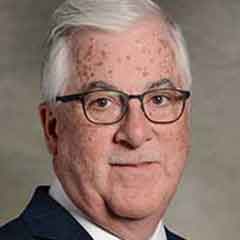
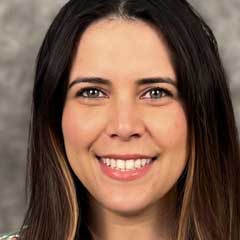
The American Thoracic Society (ATS) recently released evidence-based guidelines for pulmonary rehabilitation. Implementation of the current evidence-based guidelines presents various challenges for all patients with chronic lung disease, particularly in the uninsured population. Respiratory therapists will play a key role in the implementation of these guidelines. This presentation will include a brief review of the ATS pulmonary rehabilitation evidence-based guidelines, followed by a description of the development of a pulmonary rehabilitation program for patients who are uninsured.
9:00 a.m.–11:50 a.m.
Symposium
Respiratory Care Journal Symposium
9:00 a.m.–9:35 a.m. | Canal AB | Education
Framing the Hypothesis and Writing the Question
Denise Willis, MSc, RRT, RRT-NPS, AE-C, FAARC
Show description

Describe the process of generating an idea for a research project.
9:45 a.m.–10:20 a.m. | Canal AB | Education
How to Effectively Search the Literature
Lynda Goodfellow, EdD, RRT, FAARC
Show description
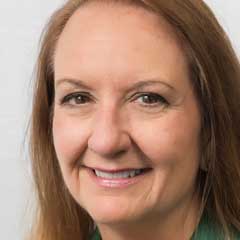
Describe how to search the literature and assure you have the background data to write an effective research protocol.
10:30 a.m.–11:05 a.m. | Canal AB | Education
Choosing a Mentor, Establishing the Team, and Developing Ideas
Andrew Miller, MSc, RRT, RRT-ACCS, FAARC
Show description
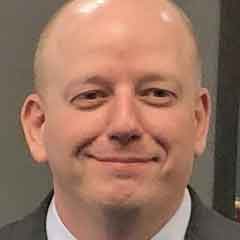
Describe how to start your research career.
11:15 a.m.–11:50 a.m. | Canal AB | Education
Facilitation of Inclusion in the Research Process
Amanda Nickel, MSc, RRT, RRT-NPS, RRT-ACCS
Show description
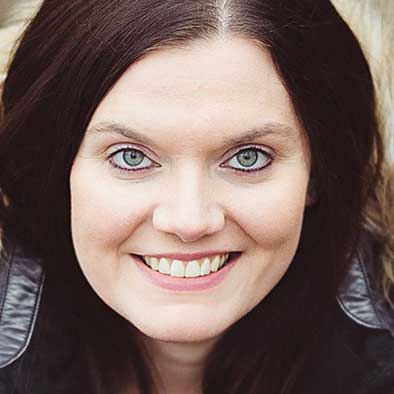
Describe how to include a wide variety of personnel, ideas, and viewpoints in your research process.
9:00 a.m.–9:35 a.m. | Washington B | Education
The Emerging Role of Social Media in Health Sciences Education
Kamran Mirza, MD, PhD
Show description
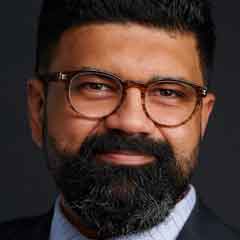
Social media has revolutionized the way we approach networking, collaborating, and educating. This session will highlight the role of social media in promoting health sciences education, research, and interprofessional collaboration. Using real life examples, attendees will be able to understand how social media may influence their professional presence and develop a plan to supercharge their online network.
9:00 a.m.–9:35 a.m. | Delta Ballroom B | Adult Acute Care
The Past, Present, and Future of Diaphragm Pacing
Maria Madden, RRT, RRT-ACCS
Show description
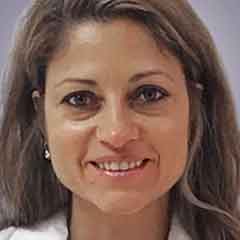
Diaphragm pacing has been around for over 200 years. During this lecture, the presenter will review the past and present pacers and overall goals for diaphragm pacing. Also, the future of diaphragm pacing will be discussed.
9:00 a.m.–9:35 a.m. | Delta Ballroom D | Neonatal/Pediatrics
Should We Use Pressure Support during Extubation Readiness Testing?
Andrew Miller, MSc, RRT, RRT-ACCS, FAARC
Show description

Daily extubation readiness testing (ERT) is recommended for children receiving invasive mechanical ventilation. It is controversial whether ERTs should be performed using pressure support to overcome the resistance of the endotracheal tube, a low level of pressure support, CPAP, or with no support. This lecture will cover the rationale for different methods and discuss the evidence supporting each method.
9:45 a.m.–10:20 a.m. | Delta Ballroom B | Adult Acute Care
Are We on The Verge of True Lung Protective Ventilation?
Bill LeTourneau, MA, RRT, RRT-ACCS
Show description

Lung protective ventilation is a term used to imply safe and optimal mechanical ventilation management. This presentation will discuss the role of lung protective ventilation in clinical practice and how it affects patient outcomes. Current evidence related to specific lung protective practices will be reviewed.
9:45 a.m.–10:20 a.m. | Delta Ballroom C | Clinical Practice
Bridging the Pulmonary Rehabilitation Rural Health Disparity Gap
Dave Burnett, PhD, RRT
Show description
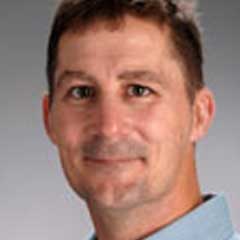
Pulmonary rehabilitation (PR) improves the lives of people with chronic lung disease; however, utilization of PR remains low. This session will discuss how health care disparities can affect patients having access to and participation in PR. An emphasis on improving access to care from the perspective of the patient, health care provider, and payer will be provided.
9:45 a.m.–10:20 a.m. | Washington B | Education
Critical Thinking Skills of Respiratory Therapy Students & Graduates
Chris Russian, PhD, RRT, RRT-NPS
Jonathan Waugh, RRT, RPFT, FAARC
Show description

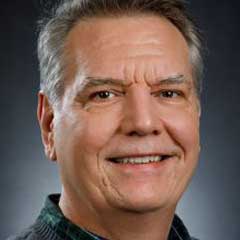
As the scope of respiratory care practice continues to expand, critical thinking and sound clinical judgement will only become more important. The exploration of critical thinking skill development within respiratory care education programs can provide valuable information to assist with the education of the next generation of respiratory care providers and the status of our respiratory care programs. Presenterswill share the results of a study conducted using the Health Sciences Reasoning Test-Numeracy to determine the critical thinking skills between near and recent graduates of two- and four-year respiratory therapy programs.
9:45 a.m.–10:20 a.m. | Delta Ballroom D | Neonatal/Pediatrics
Transition from Critical Care to Home Care Ventilator in the NICU/PICU
Jennifer Erkinger, MS, RRT, RRT-NPS, AE-C, C-NPT
Show description

For some patients, transitioning from an ICU ventilator to a portable, home care ventilator happens smoothly. On the contrary, other patients require multiple attempts with a variety of home care machines before successfully making the switch. Little is published in the literature regarding standards for transitioning support, but clinical assessment paired with anecdotal experience allows some of the toughest patients to achieve the next step on their journey to discharge.
10:30 a.m.–11:05 a.m. | Delta Ballroom B | Adult Acute Care
Lung Ultrasound: The RT’s New Stethoscope?
Stacey Cutts, BS, RRT, VA-BC
Show description

Is it time for RTs to utilize lung ultrasound more frequently? This presentation will introduce point-of-care ultrasound and its utility for RTs. Images with pathology and how they relate to RT assessment will be presented. Also, components of an ultrasound training program will be discussed so RTs can help drive this practice in their own institution.
10:30 a.m.–11:50 a.m.
Symposium
Creating an Evidence-Based Culture
10:30 a.m.–11:05 a.m. | Washington B | Education
Putting Evidence-Based Practice into Operation
Kimberly Clark, EdD, RRT, FAARC
Show description

This session invites participants to apply evidence-based practice (EBP) resources and strategies to learning activities that promote engagement. The presentation will include facilitated small and large group discussions on developing a plan to incorporate EBP resources and teaching strategies. Participants will actively engage in open reflection on ways to incorporate EBP content, promote role modeling, and create a culture for EBP in respiratory therapy programs and hospital departments.
11:15 a.m.–11:50 a.m. | Washington B | Education
Enhancing Professionalization Through Scholarship
Marco Zaccagnini, MSc, RRT, FCSRT
Show description

Entry-into-practice respiratory care graduates are often unprepared for scholarly practice as they enter the workforce. Fostering scholarly practice among respiratory therapists is an important step toward enhancing the professionalization of respiratory therapy, which may contribute to professional empowerment and role satisfaction. This presentation will provide an overview of theories of professionalization and illustrate why respiratory therapists should embrace scholarly practice as a vehicle for supporting the professionalization of the profession.
10:30 a.m.–11:05 a.m. | Delta Ballroom D | Neonatal/Pediatrics
Lessons Learned from the Bronchiolitis Epidemic
Brian Walsh, PhD, RRT, RRT-NPS, FAARC
Show description
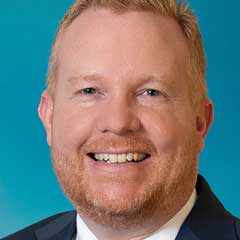
Management of bronchiolitis is well described in several evidence-based clinical practice guidelines; however, the epidemic of 2022 presented a surge that overwhelmed hospitals nationwide. Although theorists have proposed a plethora of explanations for the surge in cases, the truth of the matter is that viral patterns did not present in a “textbook” fashion and warm environmental temperatures did not seem to decrease viral circulation as once proposed. This lecture will focus on the unique opportunities this unusual season gave us and lessons learned along the way as we prepare for the next viral season.
11:15 a.m.–11:50 a.m. | Delta Ballroom B | Adult Acute Care
Tracheostomy Care in Adult Acute Care: State of the Evidence
Dean Hess, PhD, RRT, FAARC
Show description
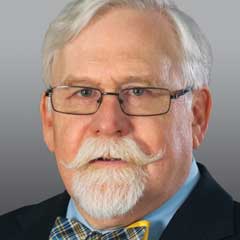
Effective, comprehensive tracheostomy care requires efforts from various disciplines. While tracheostomy care is not new, the evidence has evolved over the years that guides how to optimize care. During this lecture, the speaker will review the current state of the evidence around the care of patients with tracheostomy in the acute care setting.
11:15 a.m.–11:50 a.m. | Delta Ballroom D | Neonatal/Pediatrics
Managing the Unexpected: Supporting Neonatal Patients as an RT
Gbolahan Harris, RRT, RRT-NPS, RRT-SDS, RPSGT
Show description

As health care professionals we are trained to handle a wide variety of complex situations, but it is the unexpected that truly tests our skills and resilience. This is especially true for Respiratory Therapists who work with neonates, where every breath counts, and every decision can have a profound impact on a fragile life. This lecture will discuss the unique skill set, knowledge, and dedication needed to manage the unexpected in neonatal respiratory care.
10:30 a.m.–11:50 a.m. | Delta Ballroom C | General
Agency Update
Carl Hinkson, MSc, RRT, RRT-ACCS, RRT-NPS, FAARC—AARC President
Tonya Winders, MBA—ARCF Chair
Amy Boeckmann, MPA, RRT—NBRC President
Kevin O’Neil, MD—CoARC President
Show description



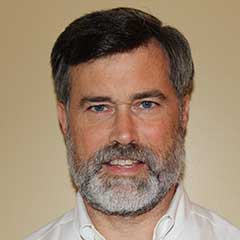
The leadership of the AARC, ARCF, CoARC, and NBRC will present the most updated information affecting the profession, research, accreditation, and credentialing. This is a must-attend session on your agenda!
12:00 p.m.–12:50 p.m. | Delta Ballroom A | General, Neonatal/Pediatrics
39th Phil Kittredge Memorial Lecture
To Intubate or Not? That is the Question—Determining NIV Failure in Pediatrics
Natalie Napolitano, MPH, RRT, RRT-NPS, FAARC
Show description

Non-invasive ventilation is a tool in the RT’s arsenal that is heavily dependent on patient compliance, interface fit, and diligence of staff to ensure the patient is receiving the prescribed treatment. Despite optimizing these key components of NIV, many patients spend a significant amount of time in limbo, unable to wean off of support. This poses a dilemma for the multidisciplinary team that is left to weigh the pros and cons and risks and benefits to prolonged NIV use in the intensive care unit with those of intubation and invasive mechanical ventilation. Defining NIV failure is a complex and important decision point in the progression of acute respiratory failure in children.
1:00 p.m.–1:40 p.m. | Delta Ballroom A | General
Closing Ceremony
Breaking the Glass Ceiling!
Joel Brown MSM-HCA, RRT, FAARC
Show description

If you're a respiratory therapist seeking to soar above career obstacles, this dynamic talk is your answer. Joel will unveil the real and perceived barriers holding you back and provide you with the tools and mindset to smash through them. Get ready to identify limiting beliefs, nurture a growth mindset, and master career advancement strategies. This high-energy session promises to empower you, enabling you to apply the wealth of knowledge gained at Congress for rapid career elevation. Don't miss your chance to break free and excel in respiratory therapy!
There are no sessions that match your display preferences.

